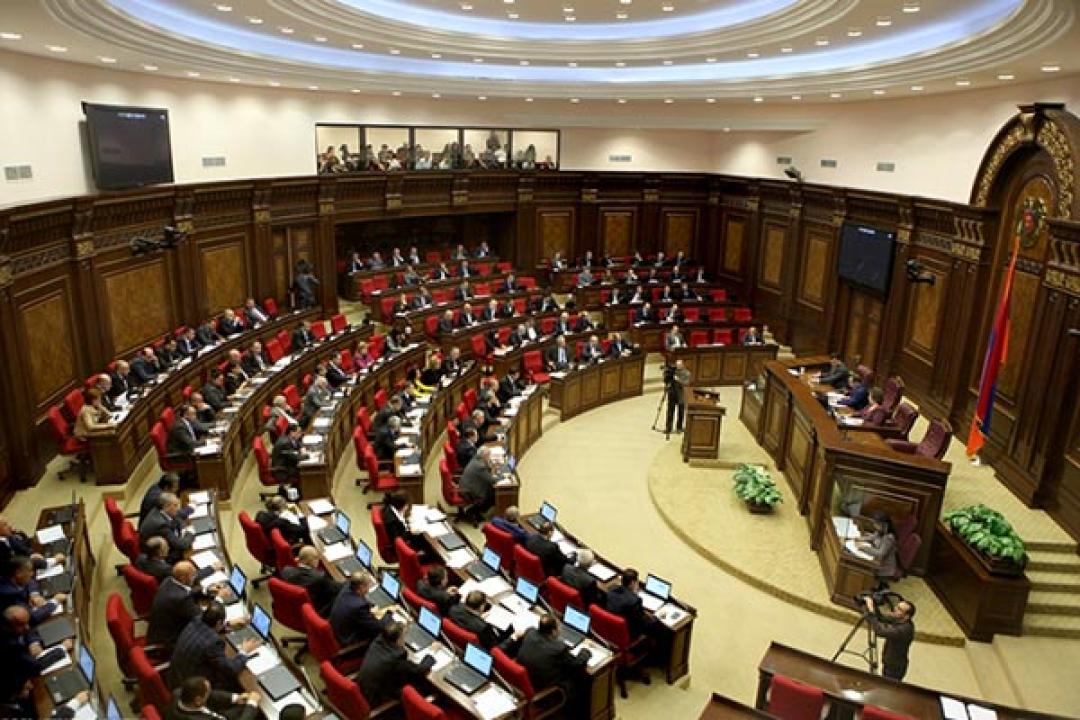
Armenian parliament adopts stricter measures on acts of defamation, treason and espionage

On 11-12 February, the Armenian parliament adopted a set of laws which foresee harsher punishments for acts of high treason, espionage and acts of insult and slander.
On 12 February, the parliament passed a set of amendments to Armenia’s Criminal Code which toughen punishment for high treason up to life imprisonments and seizure of property. The punishment for espionage has been raised from 12 to 20 years in prison. The amendments were backed by 109 lawmakers, 1 parliamentarian opposed and 2 abstained. The amendments were co-sponsored by MPs from the opposition Prosperous Armenia party Vahe Enfiajyan, Naira Zohrabyan and Iveta Tonoyan.
Sergey Atomyan, a member of the standing parliamentary committee on state and legal issues, said that initially the amendments proposed 20 years in prison and life imprisonment for high treason. However, the committee and other lawyers came to the conclusion that the punishment be set to 15 to 20 years in prison and up to life in prison to allow the judge to rule on a verdict depending on the degree of danger of individual actions. “In the course of these discussions, we came to the conclusion, which was accepted by the authors of the bill that treason would be imprisoned for 15 to 20 years up to life imprisonment,” he said.
The country’s Deputy Minister of Justice Armen Hovhannisyan stressed that the changes cannot be applied to cases of high treason and espionage discovered in the future but committed in the past. “Both the Constitution and the Criminal Code provide that if a law is toughened, it has no retroactive effect: if at the time of the crime there was a softer law, and later it was toughened, then the toughened law cannot have retroactive effect,” he explained.
A day earlier, the parliament passed a bill that increased the amount of fines for insult and slander to 5 million and 10 million drams ($19,200), respectively. The bill was drafted in 2020 by Deputy Parliament Speaker Alen Simonyan, who said that its adoption was important in terms of protecting the honour and dignity of a person from slander and insults and would also allow citizens to receive more reliable information. The country’s Deputy Minister of Justice Vahe Danielyan objected to the sharp toughening of defamation penalties, saying that a reasonable balance must be ensured between constitutional values: freedom of speech and honour and dignity.
Armenia’s leading media organisations also denounced the bill, calling it a threat to the freedom of speech. Shushan Doydoyan of the Yerevan-based Center for Freedom of Information stated that the much heavier fines could be used by the government or non-state actors to muzzle the mass media. She also argued that anonymous social media accounts will remain the main sources of slanderous information and will not be affected by the bill.
It should also be noted that martial law is still in force in the country. While speaking in front of the parliament, Armenia’s Justice Minister Rustam Badasyan said that the martial law will be lifted once the grounds that prompted its declaration are no longer present and that there were no political implications in the decision to extend its duration.
See Also


Armenia Records 5.9% GDP Growth in 2024, Missing 7% Goal

Yerevan Balances Strategic Ties with Both US and Russia, Says Foreign Minister

FM Mirzoyan: Peace Deal with Azerbaijan Is Within Reach

Pashinyan and Erdogan Hold Call, Reaffirm Commitment to Ongoing Dialogue

